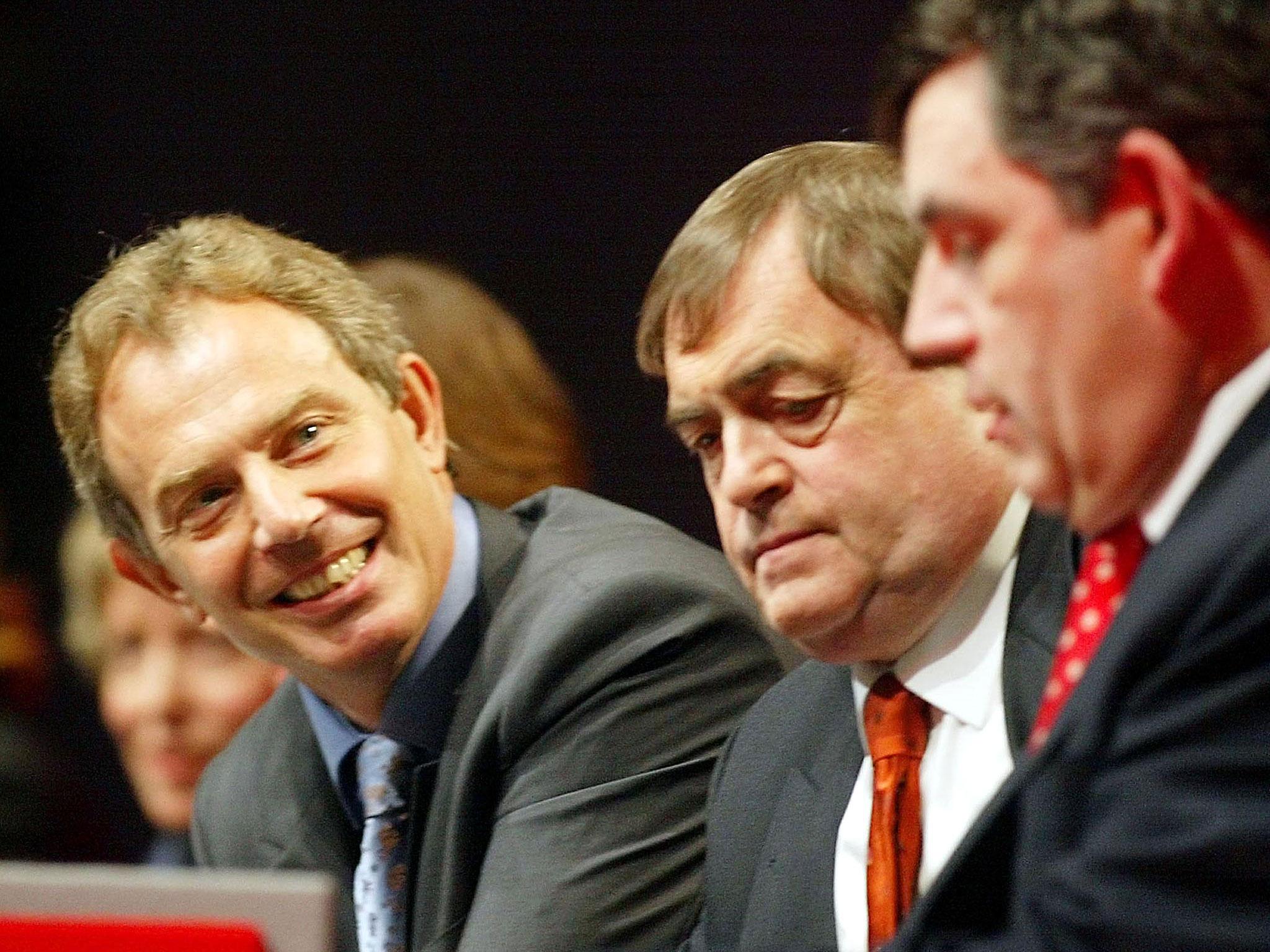Chilcot report: John Prescott says Iraq War was illegal
Blair's decision to take part in the Iraq War was supported by Prescott at the time

Your support helps us to tell the story
From reproductive rights to climate change to Big Tech, The Independent is on the ground when the story is developing. Whether it's investigating the financials of Elon Musk's pro-Trump PAC or producing our latest documentary, 'The A Word', which shines a light on the American women fighting for reproductive rights, we know how important it is to parse out the facts from the messaging.
At such a critical moment in US history, we need reporters on the ground. Your donation allows us to keep sending journalists to speak to both sides of the story.
The Independent is trusted by Americans across the entire political spectrum. And unlike many other quality news outlets, we choose not to lock Americans out of our reporting and analysis with paywalls. We believe quality journalism should be available to everyone, paid for by those who can afford it.
Your support makes all the difference.The Iraq War was illegal, according to Lord Prescott, the deputy prime minister at the time of the 2003 invasion.
The Labour heavyweight used his strongest language yet to condemn Tony Blair's decision to take part in the Iraq War, a decision he supported at the time.
Lord Prescott's comments come just days after the publication of the long-awaited Iraq Inquiry report by Sir John Chilcot.
Writing in The Sunday Mirror the peer said: "I will live with the decision of going to war and its catastrophic consequences for the rest of my life.
"In 2004, the UN secretary-general Kofi Annan said that as regime change was the prime aim of the Iraq War, it was illegal.
"With great sadness and anger, I now believe him to be right."
Lord Prescott said the Chilcot report was a "damning indictment of how the Blair government handled the war - and I take my fair share of blame".
"As the deputy prime minister in that Government I must express my fullest apology, especially to the families of the 179 men and women who gave their lives in the Iraq War."
He also welcomed current Labour leader Jeremy Corbyn's decision to apologise on behalf of the party for the war.
The Chilcot report strongly criticised the way former prime minister Mr Blair took the country to war in 2003 on the basis of "flawed" intelligence with inadequate preparation at a time when Saddam Hussein did not pose an "imminent threat".
Sir John also said the way the decision about the legal basis for the war was reached was "far from satisfactory", but the report did not rule on the legality of the military action.
Lord Prescott said he had concerns about the way Mr Blair ran his government, with Cabinet ministers given "too little paper documentation" to make decisions.
He also said intelligence reports were based on "discussions at receptions and prejudiced sources", amounting to "tittle-tattle, not hard evidence".
"We now learn from Chilcot that even the intelligence agencies warned of the inadequacies or reliability of such intelligence sources," Lord Prescott said.
"But these concerns were never referred to in any of the intelligence documents given to the Cabinet."
The ex-deputy prime minister said there was a "failure" to provide Cabinet with the reasoning behind then attorney general Lord Goldsmith's judgment that military action was legal.
He said the law officer "verbally announced it was legal, but provided no documentation to justify it".
Lord Prescott said the timing of the decision "was clearly designed to endorse an almost immediate action for us to go to war".
He said that Mr Blair was determined to be a "special friend" to the US and president George W Bush.
Referring to a previously secret memo disclosed in the Chilcot files, Lord Prescott said: "Tony's note to Bush with that devastating quote 'I am with you, whatever' was all the Americans needed to go in, without UN support."
Mr Blair has defended the decision to oust Saddam and insisted that his efforts to form a close relationship with the US had persuaded Mr Bush to pursue a second UN security council resolution, which ultimately was not obtained.
PA
Join our commenting forum
Join thought-provoking conversations, follow other Independent readers and see their replies
Comments